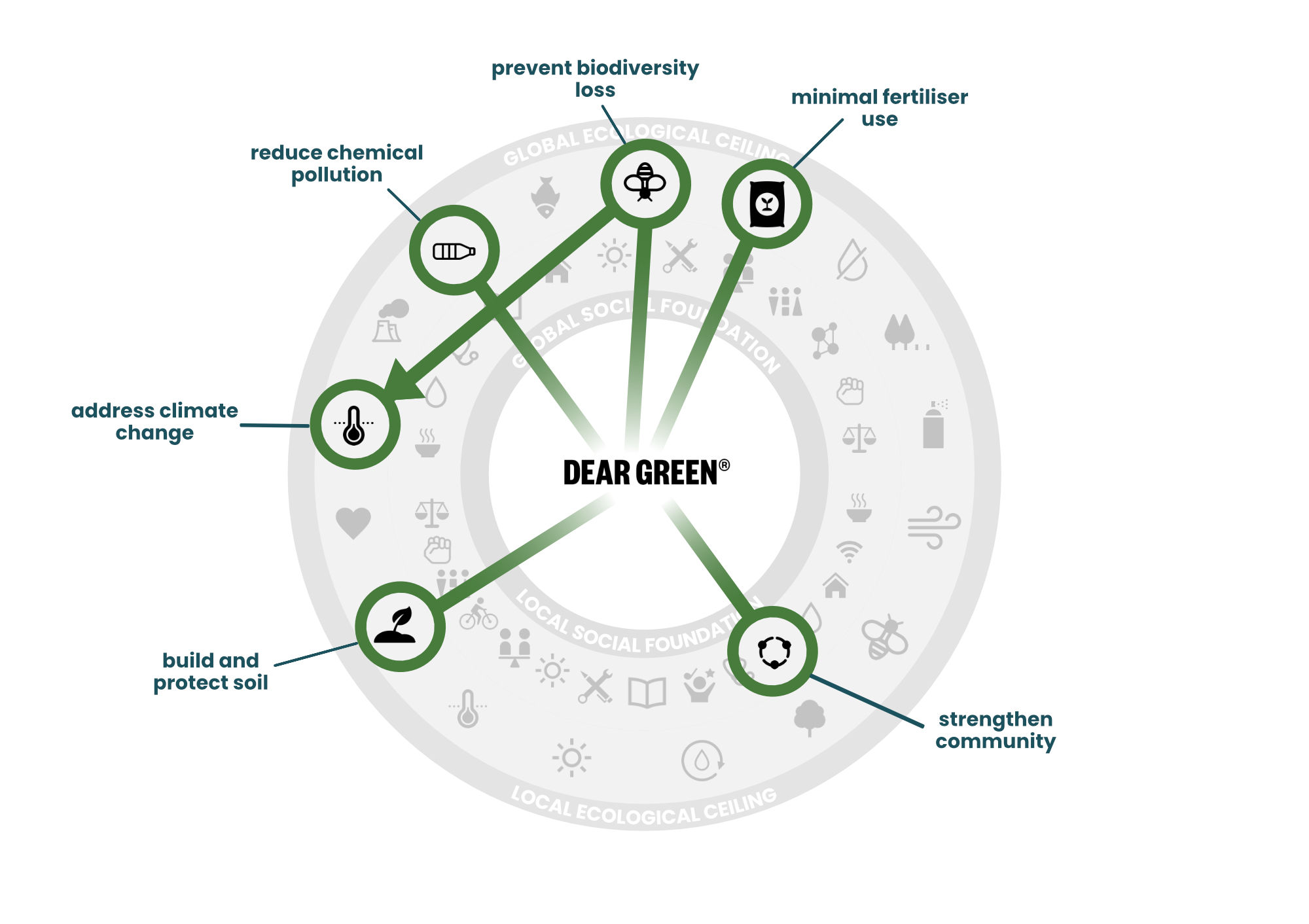Case Study 1 - Dear Green

Dear Green manages its waste by providing coffee chaff, a byproduct of the roasting process usually thrown away, as a natural fertiliser to local residents and communities. Through a simple, circular economy solution, local growers and community gardens collect the chaff, at no cost, to grow nutritious food. This strengthens the local food system by improving the health of some of the city’s soil and providing fresh, low-carbon, and seasonal produce.
Dear Green also supports Wash House Garden, a queer collective dedicated to food sovereignty, land justice, and sustainable agricultural practices in Glasgow.
Find out more about Dear Green.

Dear Green and the Doughnut: Diagram showing the impact the work of Dear Green has on themes within the Doughnut Economics model.
Internationally, Dear Green extends its impact through The Stumping Project in Ethiopia, a partnership with Falcon Coffee and TechnoServe. Low productivity is a significant challenge for over 2 million smallholder farmers whose livelihoods depend on coffee cultivation. The practice of stumping (trimming older coffee trees) at the Daye Bensa Cooperative increases the yield of coffee plants in the long term. This improves economic stability, while preventing deforestation and mitigating biodiversity loss and greenhouse gas emissions. Daye Bensa’s recent visit to Dear Green provided an opportunity for the two organisations to reaffirm their valuable partnership, rooted in a commitment to transparency and sustainability across the coffee supply chain and the importance of preserving the growing traditions in Ethiopia.
During its 2024 B Corp recertification, Dear Green achieved one of the highest scores of any Scottish coffee roaster, placing it alongside global leaders like Patagonia and Ben & Jerry’s. This recognition reaffirms its ongoing commitment to its workers across the supply chain, community wellbeing and environmental stewardship. The business will continue to collaborate with other B Corps to increase transparency and drive systemic change across the coffee supply chain.
Dear Green has set a goal to achieve net zero emissions by 2030, contributing to Glasgow’s Thriving City Portrait and its vision of a resilient, inclusive and flourishing city. Plans to reach this target include investing in electric vehicles, installing solar panels and heat pumps, and implementing anaerobic composting for waste. Through these actions, Dear Green exemplifies how smaller, values-driven businesses can work towards Glasgow’s ambitious but necessary emissions targets, foster regenerative practices, empower communities, and contribute to a thriving city.
Further information:

